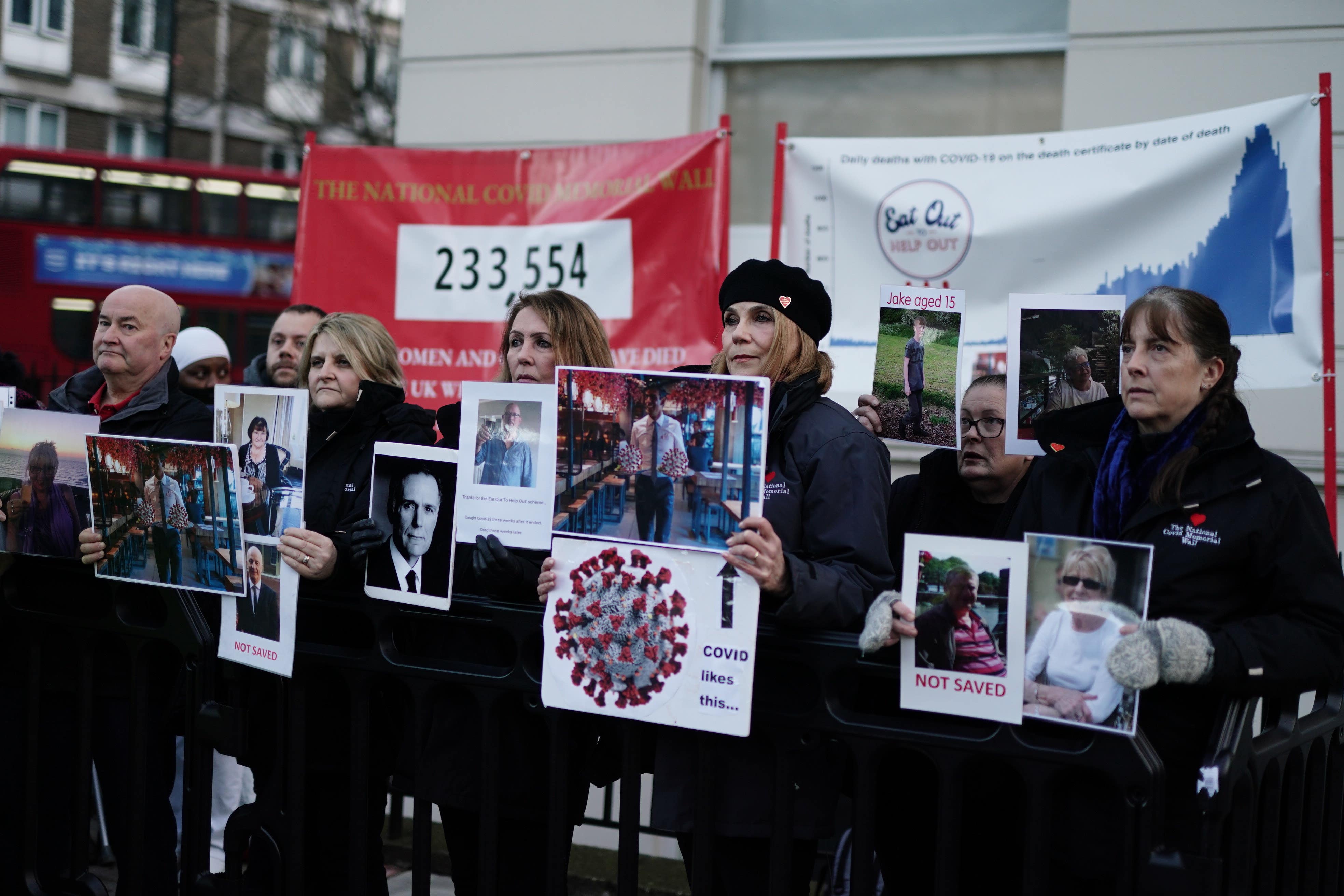Key points from Rishi Sunak’s evidence to the Covid inquiry
The Prime Minister was grilled about his role in the Government’s pandemic response by lead counsel Hugo Keith KC on Monday.

Your support helps us to tell the story
From reproductive rights to climate change to Big Tech, The Independent is on the ground when the story is developing. Whether it's investigating the financials of Elon Musk's pro-Trump PAC or producing our latest documentary, 'The A Word', which shines a light on the American women fighting for reproductive rights, we know how important it is to parse out the facts from the messaging.
At such a critical moment in US history, we need reporters on the ground. Your donation allows us to keep sending journalists to speak to both sides of the story.
The Independent is trusted by Americans across the entire political spectrum. And unlike many other quality news outlets, we choose not to lock Americans out of our reporting and analysis with paywalls. We believe quality journalism should be available to everyone, paid for by those who can afford it.
Your support makes all the difference.Rishi Sunak, who served as chancellor during the coronavirus pandemic and was responsible for implementing the furlough and Eat Out To Help Out schemes, appeared before the UK Covid-19 Inquiry on Monday.
Here are the key points from his evidence:
– Defending Eat Out To Help Out
Mr Sunak offered an animated defence of his controversial initiative, saying it was the “right thing to do to protect” workers from the “devastating consequences” of job losses.
Grilled about why the Government’s scientific advisers and health secretary were not consulted, he argued it was a “micro policy” within the overall reopening plan they had already approved.
He added that they had “ample opportunity” to raise concerns and did not.
– Missing WhatsApps
Mr Sunak confirmed that his pandemic-era messages were not available to Baroness Hallett’s probe because he had changed his phone “multiple times over the last few years” and the messages from the old ones had “not come across”.
No one advised him to try to save messages for the inquiry, even when Boris Johnson announced its establishment in May 2021, he said. But, he noted, he was not a “prolific” WhatsApp user anyway and anything of significance was recorded officially.
– Not recalling things
Mr Sunak was challenged over his hazy memory of a March 23 2020 meeting where the decision was taken to impose the first lockdown. “I can’t precisely recall that particular meeting,” he said, prompting lead counsel Hugo Keith KC to say: “This was, of course, one of the most momentous decisions in the history of this nation.”
Other elements he could apparently not remember included warnings over how risky the wider opening-up measures were ahead of Eat Out To Help Out’s August 2020 launch, concerns then-health secretary Matt Hancock said he raised about the scheme, and details of the free school meals policy.
– Defending his former boss
Mr Sunak played down suggestions by previous witnesses that Mr Johnson’s No 10 was dysfunctional and that he dithered over Covid restrictions. He said comments about the administration being “criminally incompetent” and “chaotic” were not shared with him at the time. It would be “worse” if there had not been “vigorous debate” over such consequential decisions, Mr Sunak argued.
– A sombre apology to the bereaved
As Mr Johnson did last week, Mr Sunak used his opening remarks to the inquiry to issue an apology. The Prime Minister said he was “deeply sorry” to those who lost loved ones and who suffered during the pandemic “as a result of the actions that were taken”. He added that “it’s important that we learn the lessons so that we can be better prepared in the future”.
– What was happening outside the inquiry
Mr Sunak would have been painfully aware that, as he gave evidence, restive Tory MPs were poring over his Rwanda legislation ahead of a crunch vote. In a blow to the Prime Minister during the inquiry’s lunch break, a panel of lawyers convened by rebel MPs rejected the Bill, saying it did not go far enough.